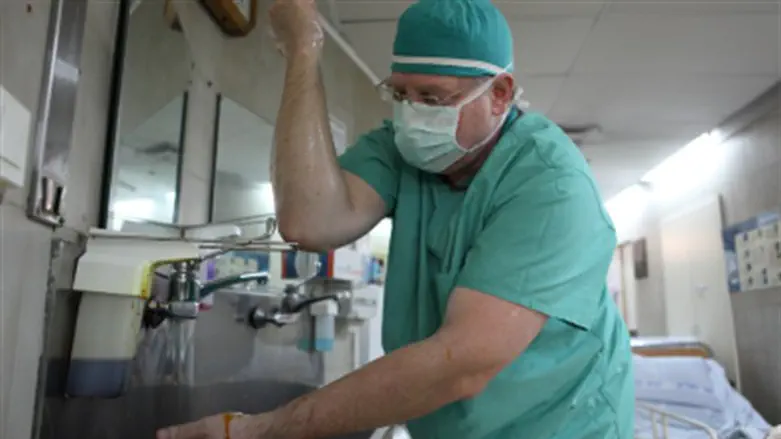
The Knesset Committee early in September discussed a law proposal submitted by Tourism Minister Yariv Levin (Likud) and MK Merav Michaeli (Zionist Union) regarding "medical tourists" to Israel.
"Medical tourists" are patients who come from abroad, usually from countries with poor health care, in order to receive better care in Israel. Since they are not covered by governmental health insurance, the payment received for their treatment is much higher than the payment received for treating Israeli citizens.
In a 2015 report, the State Comptroller noted that hospitals prefer medical tourists and Palestinian Arabs over Israelis. Palestinian Arabs pay much less than medical tourists.
A report by the Knesset's Research and Information Center showed that in Jerusalem's Hadassah Ein Kerem Hospital, for example, the number of hospitalization days for Palestinian Arabs multiplied itself five times in two years. In 2011, Palestinian Arabs were hospitalized for 7,228 days; in 2015, the number jumped to 14,601 days. These statistics and others were collected by the "Lavi" civil rights organization.
These astronomical numbers remain large when compared to the number of Israeli patients. According to statistics publicized by Hadassah Ein Kerem's Zeev Rotstein, who works in the hospital's hemato-oncology ward, there are nearly twice as many Arabs patients as Jews: 21 Palestinian Arabs, 12 Jews, and seven medical tourists are treated in the ward.
However, the proposed law does not deal with the problem of Palestinian Arabs, or of terrorists who are treated in Israeli hospitals. Instead, it defines medical tourists as those who need an entry visa.
After the discussion in the Knesset, the Hotam organization published a position paper on the subject of medical tourism. In it, they spoke about the clause in Jewish law which requires locals to receive precedence over outsiders who need help, especially if those outsiders are from a different nation. In addition, Hotam mentioned that Israeli tourists pay a health tax, and preferring medical tourists allows issues of bribery to develop.
"We must significantly limit the amount of medical tourism in the public health system," Hotam wrote. "And we must clarify the ethical guidelines and forbid any preference or advantages for medical tourists over Israeli citizens."
"In the State Comptroller's report, we found that Israeli hospitals preferred patients from the Palestinian Authority and abroad over Israeli patients," Lavi wrote. "The government is discussing a law which will limit medical tourism, but for an incomprehensible reason does not deal at all with patients from the Palestinian Authority, essentially allowing them to receive preference over Israeli patients."
"Within five years, the number of Palestinian patients in Israeli hospitals has multiplied, and most of the burden falls on the collapsing oncology wards. Recent statistics show that the number of bone marrow transplants for Palestinian patients in Hadassah Ein Kerem was twice the number of bone marrow transplants performed on Israelis, and three times the number of those performed on tourists. The new law will not deal with the problem of Palestinian patients, and therefore it will not lessen the burden."
In May, a Palestinian Arab Jerusalem-area hospital stopped receiving patients because it did not receive funds from the Palestinian Authority.
The PA continues to pay an estimated $10 million each month to terrorists in Israeli prisons and a further $15 million a month to the families of terrorists who have carried out attacks against Israelis. The PA has refused to consider stopping the payments to terrorists in order to divert funds to other places, such as hospitals.